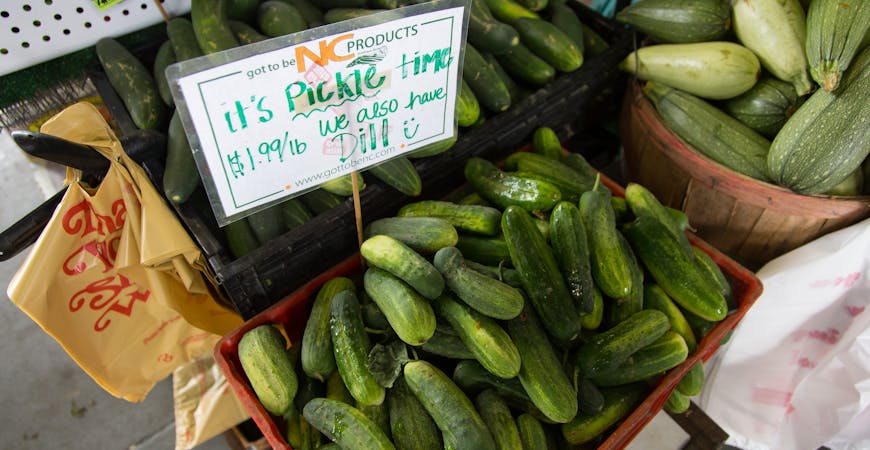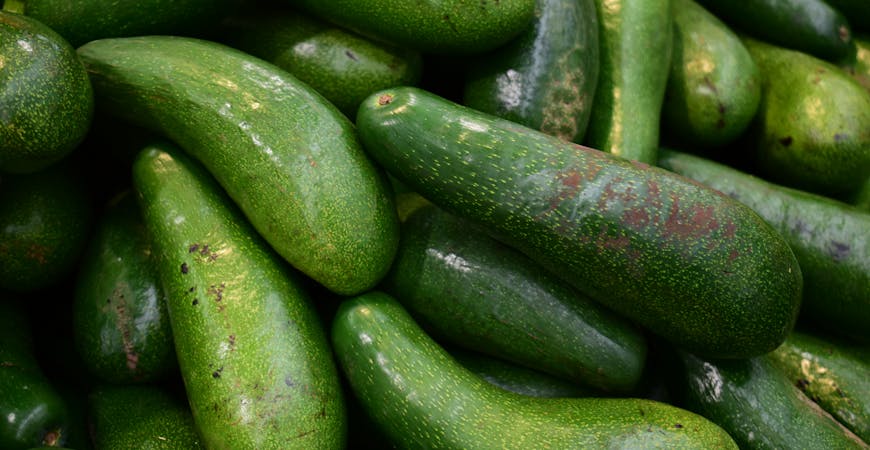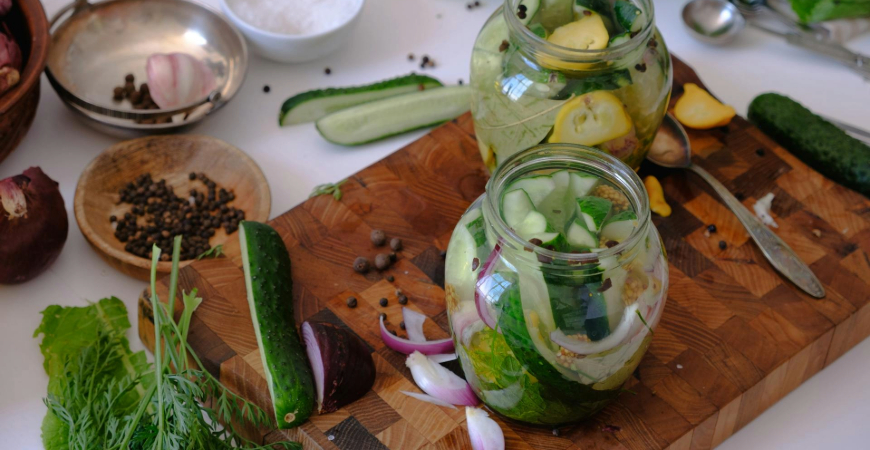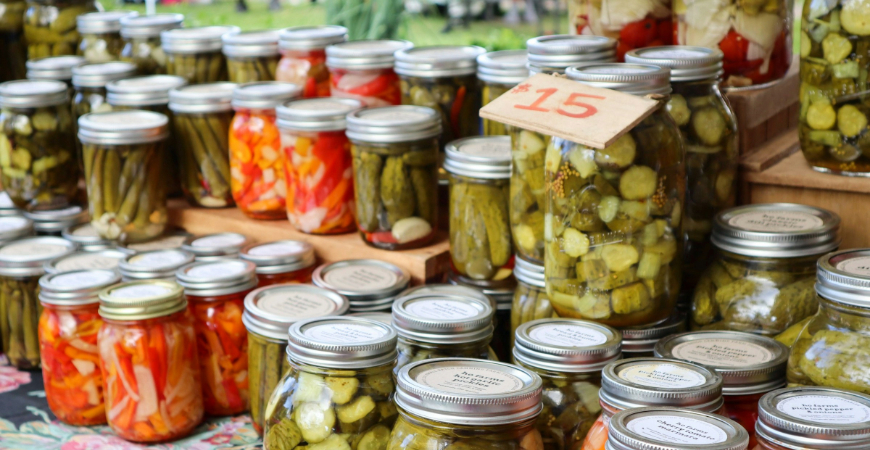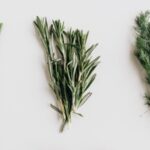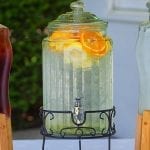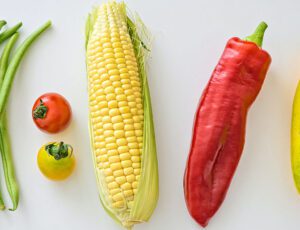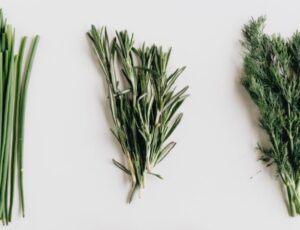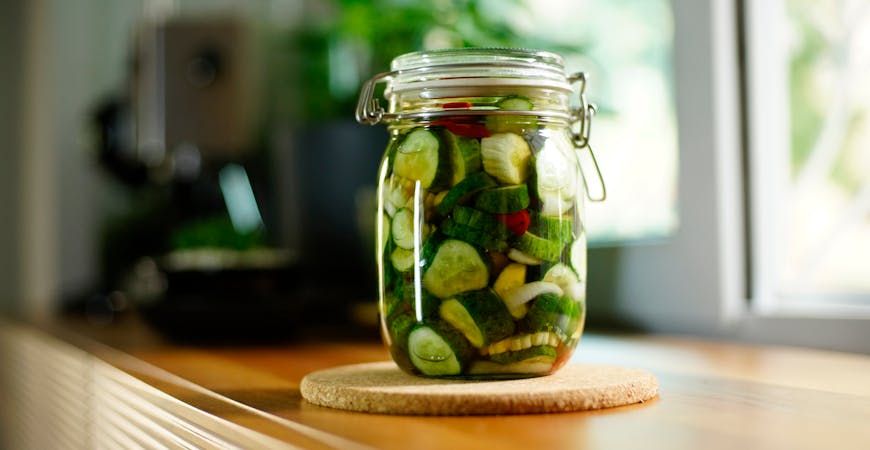
Top Pickle Growing Tips and Tricks
It’s hard to disrespect the humble pickle. It adds crunch to sandwiches, a refreshing element to hot dogs, and some necessary zing to potato salad.
But pickles can be more than just the condiment du jour. At your local grocery store, you can find pickle juice cocktails, pickle-flavored seltzers, and pickle-seasoned popcorn.
Increasingly, people are turning to their home gardens and kitchens as their premium pickle source. To make sure you’re not left out of the pickle barrel, check out our guide to growing pickles.
What Are the Best Cucumbers to Grow for Pickling?
While you can technically pickle almost any produce, when we’re pitching pickles as a conversation topic to friends and neighbors, we typically mean pickled cucumbers. Of course, not all cucumbers are apt for this method of food preservation.
For instance, those giant honking cucumbers perfect for tossing into fresh garden salads will be tough to jam into a jar with your pickling brine. Even if you slice them into something more manageable, the thicker skins and large seeds will cause a not-so-favorable pickle.
Generally, when it comes to the art of pickling, you want a cucumber with thinner skins and smaller seeds. Preferably, that cuke also offers a hearty crunch, both fresh and post-pickling.
So, if you’re shopping for cucumber seeds for your next pickling effort, consider these preferred cucumbers for pickling:
- Calypsos
- Eurekas
- Gherkins
- Homemade picklings
- Jacksons
- Northern pickling
The above cucumbers can help you produce a classic pickle. Should you want to step out of your comfort zone just a bit, we recommend the lemon cucumber.
Yes, it’s a cucumber that looks like a lemon. Yet, they taste like a typical cucumber instead of a summery citrus.
How Do You Grow Pickling Cucumbers?
Since there are so many varieties of cucumbers, there’s not necessarily one single best way to grow pickling cucumbers. That said, cucumbers tend to be a low-maintenance vegetable. Follow our tips and tricks below to learn how to grow cucumbers for pickling.
If you can provide well-draining soil, persistent watering, and access to ample sunlight, you’ll typically end up with a healthy, thriving plant — and plenty of cucumbers for pickling.
Cucumbers tend to prefer warmer temperatures. So, don’t start planting them until the last frost has spent at least two weeks in your calendar’s rearview mirror.
When it’s time, sow the seeds about three or four feet apart. Cover them with an inch or so of soil and a layer of mulch.
Because cucumbers grow quickly with trailing stems, you may think about plating them near a trellis so they have something to climb. They aren’t strictly necessary but trellises can help manage ground space with vining cucumbers.
Cucumbers can also benefit from companion planting. Marigolds and oregano can help keep pests away, while beans, corn, and lettuce all make potential recipe pairs later down the road.
Dill and other herbs, though, should be planted further away from cucumbers. While they are the perfect pairing in pickles, they don’t make great companion plants.
To prevent a bitter taste, give the cucumbers consistent watering. Giving them an inch of water once a week — more often when temperatures spike — should prevent a bitter end product.
After a couple of months, your cucumber plant should be mature enough to bear cucumbers. Once they’ve reached a length of one to four inches, it’s time to pull the cucumber off the vine.
You can also conduct a tactile and visual test to confirm whether they’re ready. They’re good to harvest when they’re firm to the touch and have a consistent dark green complexion.
How Do You Make Pickles?
With a full pickle harvest-ready, it’s time to get pickling.
To pickle something is to soak it in a brine made of at least water, vinegar, and salt. Of course, people usually add additional flavor sources like garlic, dill, or red pepper flakes.
In fact, a great thing about most pickle recipes is how flexible they are. Once you know the basic steps and ingredient ratios, it’s just a matter of swapping in and out new flavors.
That means the number of recipes is truly endless. Pickling can be fun, so don’t be afraid to test and experience new and funky brines.
With that in mind, here’s a basic pickle recipe we enjoy from Farmers’ Almanac.
To get started, collect the following ingredients, along with a quart-sized mason jar:
- 1 pound pickling cucumbers
- 4 peeled garlic cloves
- 2 teaspoons dill seed
- 1 cup distilled white vinegar
- 1 cup water
- 2 tablespoons pickling salt
When everything’s gathered, prepare the cucumbers by washing them, drying them, and cutting their ends off. Then slice them in either rounds or spears, depending on your pickle preference.
Place the pickle pieces into the jar, layering them carefully along with the garlic and dill seeds.
In a small saucepan, combine vinegar, water, and salt and bring to a boil. Then, turn the heat down so the liquid simmers for five minutes.
After five minutes, carefully pour the brine over the pickles and garlic in the jar. Make sure everything is covered, but leave about half an inch of headspace.
Let the jar cool unopened until it reaches room temperature. Then refrigerate for up to a month.
If you want to keep the pickles in your pantry, you can employ the canning method. This process is a little more complicated and requires the use of specific types of jars, but the pickles will last up to a year.
One final recipe: if you want a simple recipe that requires only a couple of cucumbers and results in bright, crunchy pickles perfect for sandwiches and burgers of all types, try this one from Serious Eats.
Beyond Cucumbers, What Other Vegetables Can You Pickle?
Just like how there’s an endless number of pickle recipes, there’s a matching list of ingredients you can pickle.
Jalapenos, mushrooms, beets, and corn can all be brined and pickled. Same with cabbage, cauliflower, and radishes.
There are some common recipes with more than one pickled ingredient. Two delicious examples are kimchi and giardiniera.
So, if you’re in the mood for a pickle but lack the cucumbers, there’s no need to fret. Instead, go to your garden and pick something fresh to pickle!
Welcome to a New World of Pickling
Pickles are the ideal condiment, with their bright freshness and crisp crunchiness. So, when you learn to make pickles yourself, you enter a delicious new world of variety!

